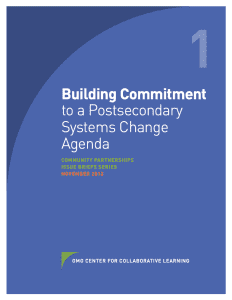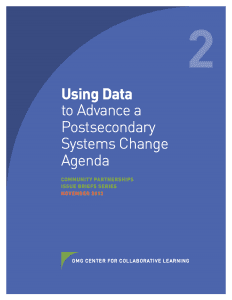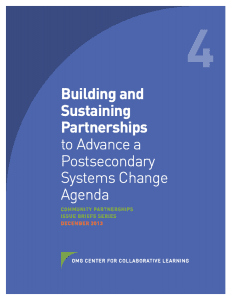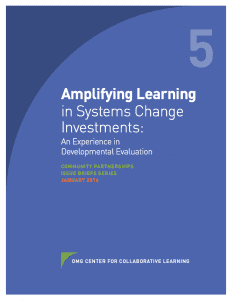A series of briefs developed in 2013 for the Bill & Melinda Gates Foundation articulate the foundational principles of effective collective impact for systems change, and are still in use today.
In 2013, Equal Measure (then known as the OMG Center for Collaborative Learning) with our client the Bill & Melinda Gates Foundation, published a series of briefs investigating the key principles of systems change through collective impact strategies, gleaned from a national evaluation of the Foundation’s Community Partnerships Portfolio.
The Community Partnerships Portfolio tested a theory of change that supporting collaboration in cross-sector partnerships was a more effective way to shift inequitable systems and reach ambitious goals for postsecondary educational attainment. The theory of change stipulated that cross-sector partnerships would use data and leverage key stakeholder commitment to align policies and practices to promote postsecondary success, and hypothesized that evidence of systems change would emerge across four mutually reinforcing areas, indicating the collective impact approach was in fact shifting systems.
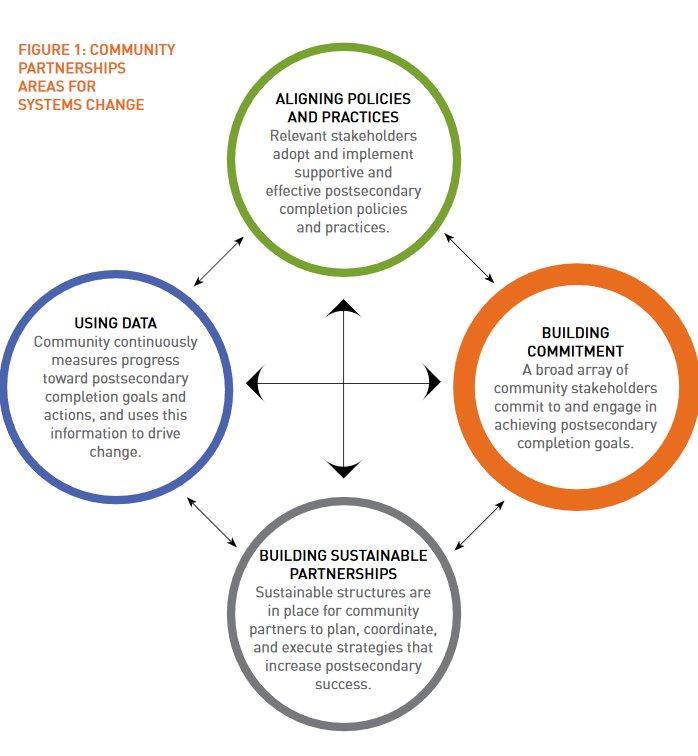
Thanks to the briefs’ in-depth observations of community progress and collective impact strategies in action, they are still in wide use today.
The principles outlined in the briefs inform our understanding of the conditions necessary for systems change and the elements of effective collective impact, an expertise we have applied across many different learning engagements with communities and foundations across the country. We’ve found the insights from this work applicable to many social change efforts, from cradle-to-career education strategies to community health initiatives. Click on any of the five to the right to read or download.
